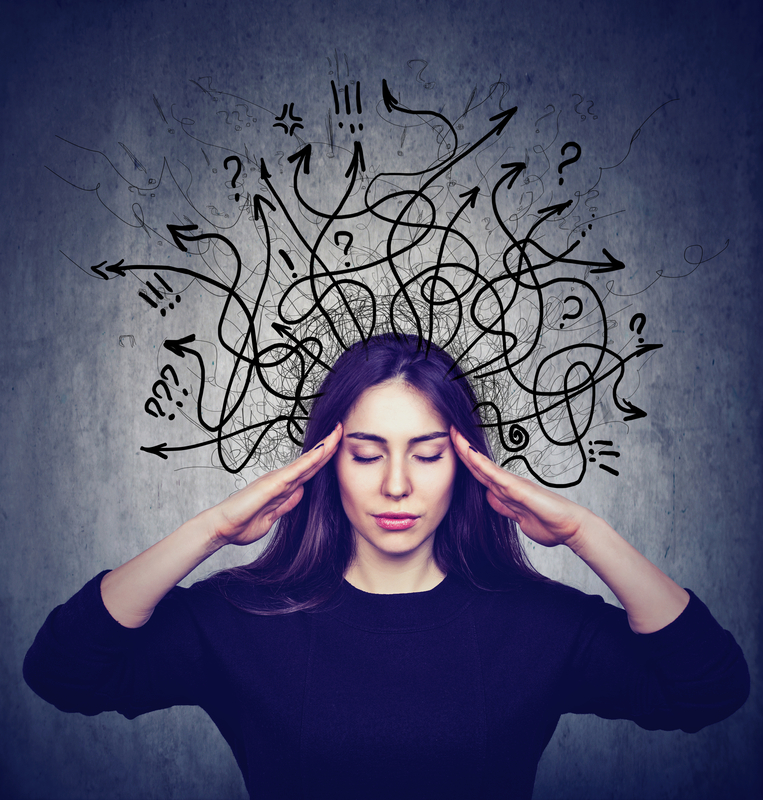What is ADHD?
ADHD stands for Attention Deficit Hyperactivity Disorder. It is a developmental disorder impacting executive functioning. It affects both children and adults. The primary symptoms are difficulty regulating or focusing attention, hyperactivity and impulsivity.
ADHD can present differently based on sub-types of ADHD.
- Those who struggle with hyperactivity and impulsivity are often diagnosed with ADHD, primarily hyperactive type.
- When lack of focus, inattention and/or distractability are the primary symptoms, ADHD primarily inattentive type is diagnosed. (Some people use the term ADD to describe this sub-type of ADHD).
- When people struggle with both of these issues they are diagnosed with ADHD combined type.
- According to Russell Barkley, a separate disorder may be helpful to “officially” recognize. What is currently called “Sluggish Cognitive Tempo” or SCT, Barkley believes should more accurately be called Concentration Deficit Disorder. People with CCD often present as “day-dreamy” or “in a fog” and have difficulty maintaining focus and concentration.
What causes ADHD?
Research to date has found that neurological and genetic factors play a substantial role in the origins and expression of ADHD. In fact, ADHD is approximately 80% heritable/genetic, which is similar to the genetic link for height. Several genes have been identified to date that are believed to be associated with ADHD, and it’s likely additional genes will be identified in the future. Many times when a child is accurately diagnosed with ADHD, a parent may for the first time begin to see some of the same symptoms impacting their own life and thus benefit from an ADHD evaluation her/himself.
You deserve the support of an experienced mental health expert to guide you through the maze of ADHD symptoms and into a peaceful and balanced life.
How do I know if I have ADHD? How do I get “tested” for ADHD?
There is no one “test” that definitively diagnoses ADHD. You may find various “tests” on the internet that are a simple checklist of the current Diagnostic and Statistical Manual (DSM-V) criteria for identifying ADHD. But ADHD should only be diagnosed by a qualified mental health professional.
The best evaluation is comprehensive and multi-modal and should include:
- Thorough history taking and gathering information about various areas of your life, over several sessions as needed. Interviews should be conducted with family members or others to obtain more objective information, as well as to learn more about current issues and specific problems at school, work, home or in relationships.
- Screening tools may be used as a starting point. And in most cases, appropriate psychological testing should also be administered to assess for ADHD, to rule out co-morbid disorders, and to gather important information about various aspects of executive functioning.
- Computerized testing may optionally be included as an additional component of the evaluation to provide more specific information about things like working memory, processing speed, selective attention, inhibitory control, etc. However, no one computerized test is sufficient by itself to diagnose ADHD.
Learn more about how ADHD may be affecting you or a loved one.
Getting started is easy
Step 1
Schedule your initial session
Call or schedule online.
Step 2
Create your plan
We’ll identify your unique issues related to ADHD and create a holistic wellness plan to help you reach your goals.
Step 3
Celebrate Success!
You’ll get all the accurate information, helpful tools and resources you need to restore balance and joy to your world.
Where can I find help for ADHD?
It’s extremely important that you find a licensed professional counselor or psychologist who has specialized knowledge about ADHD.
Most all counselors and psychologists know generally about ADHD. This generalized information can be problematic, however. Because of the many and varied ways ADHD can present, professionals without specialized ADHD training and extensive experience in working with ADHD are prone to missing ADHD diagnoses, especially if they are simply following a standard “screening out” protocol of their clinic.
Find a professional with expertise and experience assessing for and working with ADHD to increase the likelihood of an accurate diagnosis and effective treatment plan for you or your loved one.

How is ADHD treated?
ADHD is a spectrum disorder, or a disorder that can be placed on a continuum; you or your loved one may have mild, moderate or severe symptoms. Depending upon your needs, a combination of medication, behavioral modification and family psycho-education about ADHD can all be part of an effective treatment plan. Creating a plan for school success is also often part of a comprehensive treatment plan for children with ADHD. A licensed professional in your area with expertise in ADHD can help in setting up an effective treatment plan.
Where can I find accurate and up-to-date information about ADHD?
The internet is full of misinformation and disinformation about ADHD. I highly recommend anything by Dr. Russell Barkley, PhD. or Dr. Thomas E. Brown, PhD., for accurate and current information about ADHD.
Disputing Common ADHD Myths

ADHD is a disorder made up by pharmaceutical companies to make more money.
Not true. ADHD “has been found to exist in virtually every country in which it has been investigated, including North America, South America, Great Britain, Scandinavia, Europe, Japan, China, Turkey and the middle East. The disorder may not be referred to as ADHD in these countries and may not be treated in the same fashion as in North America but there is little doubt that the disorder is virtually universal among human populations.” ~ Dr. Russell Barkley
ADHD medication will turn your child into a drug addict.
In fact, the opposite is true. Longitudinal studies of substance abuse rates in children or adolescents taking stimulant medication suggest that stimulant treatment of ADHD actually reduces the risk of later substance abuse issues.
Video games, excessive sugar, food dyes or bad parenting cause ADHD.
Research does not support the conclusions that ADHD is caused by bad parenting, excessive sugar, playing video games or use of the internet, food dyes, food sensitivities or food allergies, etc.
Chiropractors, holistic healers, herbalists, natural supplements/vitamins or bio-feedback can cure ADHD.
Unfortunately, there is no cure for ADHD. Once properly diagnosed, it can be effectively managed throughout the lifespan with a combination of medication, counseling with a licensed professional counselor with expertise in ADHD, psycho-education and a comprehensive treatment plan. And of course, lifestyle changes that lead to greater wellness, such as good nutrition, exercise, healthy sleep hygiene and stress reduction are always helpful in managing ADHD and any mental health issue.
Now, imagine a better life

- Imagine managing your time, reaching goals and feeling successful.
- Imagine a contented and happy child.
- Imagine a peaceful, calm and loving home.
- Imagine a life in which you are empowered to manage ADHD successfully!
You CAN create that life for yourself and for your child and your family.
You just need the right kind of support along the way.
Become empowered to manage ADHD and restore peace, balance and joy to your life!
